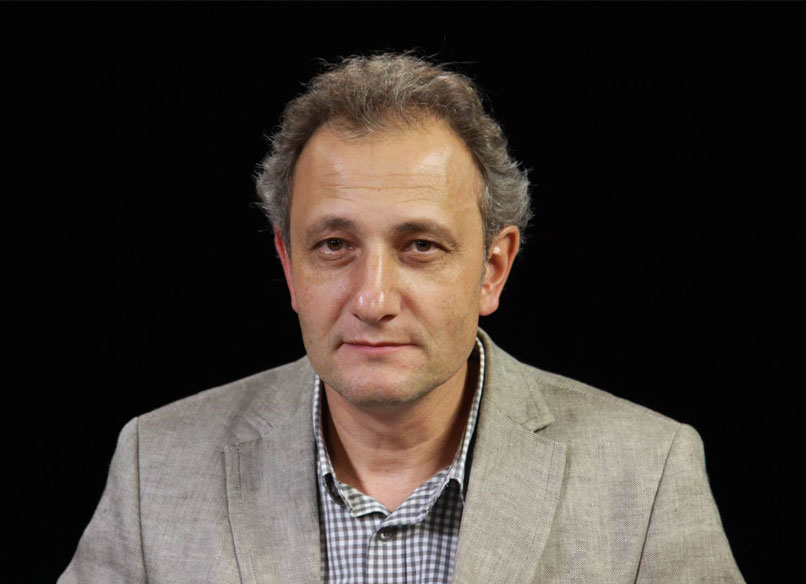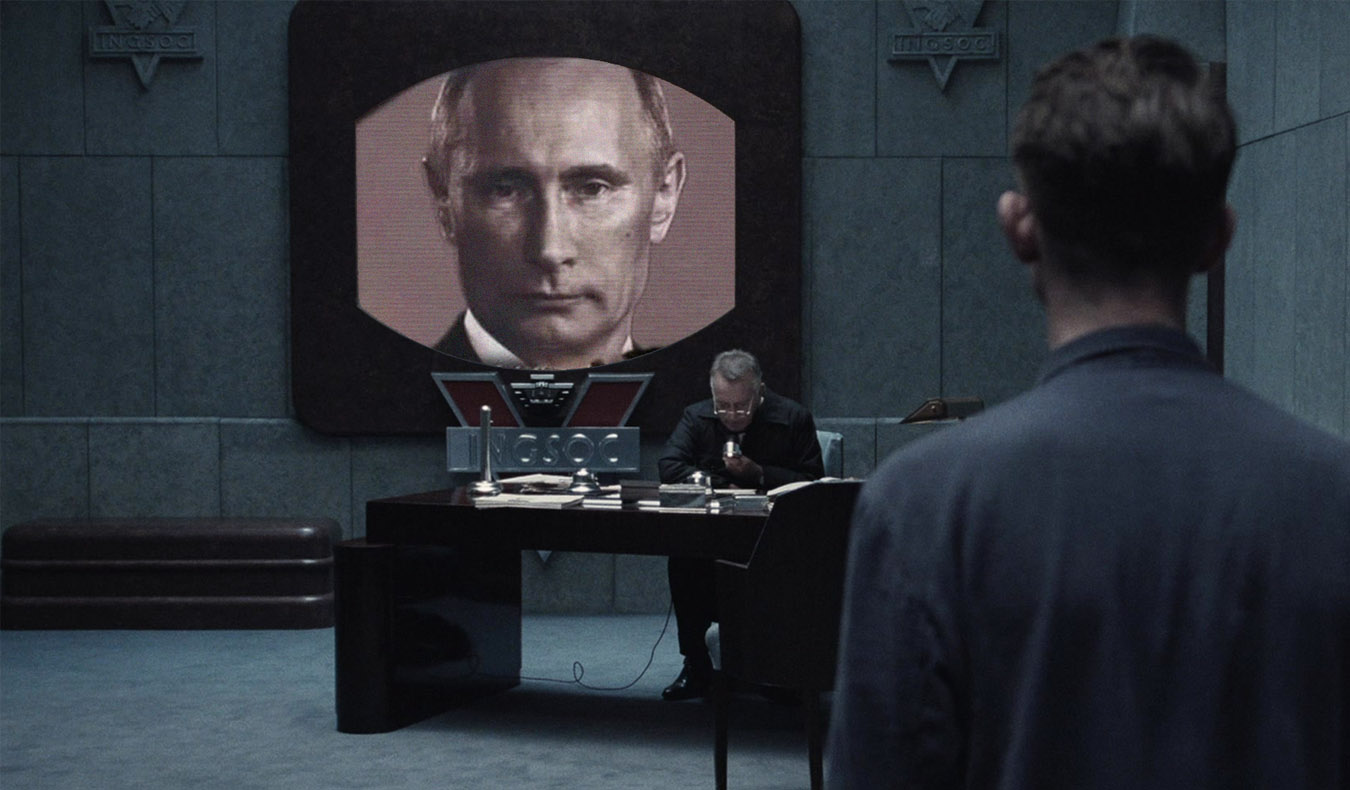— What's the shooting for? — asked the Fighter.
— In honor of our victory! — shouted the Informer.
— What victory? — asked the Fighter.
George Orwell, «Animal Farm»
 Yale University as an undesirable organization. Fines for the European University for inciting hostility and hatred towards the social group «judicial experts». Fines for searching extremist materials. New restrictions on foreign messengers. The announcement of the search for the founder of the Anderson cafe chain, Anastasia Tatulova. The director of one of the libraries was fined because she had Heinrich Böll on her shelves, which means she was associated with an undesirable organization — the Heinrich Böll Foundation. A news feed, just a news feed, and not the most terrible in the general row. And this is not «Anderson», but Andersen, a fairy tale, a mirage... No, not Andersen — this is Orwell, the best-selling author of 2022. They read, understood where they were, went on living as best they could. And Böll, as we see, ended up in Orwell's world. Posthumously...
Yale University as an undesirable organization. Fines for the European University for inciting hostility and hatred towards the social group «judicial experts». Fines for searching extremist materials. New restrictions on foreign messengers. The announcement of the search for the founder of the Anderson cafe chain, Anastasia Tatulova. The director of one of the libraries was fined because she had Heinrich Böll on her shelves, which means she was associated with an undesirable organization — the Heinrich Böll Foundation. A news feed, just a news feed, and not the most terrible in the general row. And this is not «Anderson», but Andersen, a fairy tale, a mirage... No, not Andersen — this is Orwell, the best-selling author of 2022. They read, understood where they were, went on living as best they could. And Böll, as we see, ended up in Orwell's world. Posthumously...
We live inside a dystopia, and the majority of the population has begun to settle there. Sometimes with taste. George Orwell does not frighten either the population or the authorities — his books, primarily «1984» and to a lesser extent «Animal Farm» continue to be published, despite too obvious allusions. Which were understandable not only in today's times but also in Stalin's (however, today's are also Stalin's, only in a new edition). «Animal Farm» was completed by the writer in February 1944, but the publication was held back to preserve allied relations with the Soviet Union — the hints at political and social structure seemed transparent. The head of the Russian department of the British Ministry of Information, Peter Smollett (as it turned out later, a Soviet agent recruited by Kim Philby) expressed concerns that the book might harm Anglo-Soviet relations. As a result, the book was published only in August 1945, when the common enemy of the allies was defeated. A similar story happened with Lev Trotsky's book about Stalin, which he was working on at the moment when the future Hero of the Soviet Union Ramon Ivanovich Lopez, also known as Mercader, struck Lev Davidovich with an ice pick: the book was ready for print already in 1941, but published in the USA after the war.
Ideology must be silly
Orwell is still dangerous today precisely from the point of view of people's understanding of what is happening. And not only in his prose but also in his essays.
Three days before the invasion of Nazi Germany into the territory of the USSR, Orwell wrote the essay «Literature and Totalitarianism». Undoubtedly, in the classification of authoritarian and totalitarian regimes, there may be differences expressed in fifty shades of gray. But there are fundamental, unchangeable properties: authoritarianism demands obedience, but not participation, totalitarianism requires from subjects precisely participation — in word, deed, thought:
«...its (totalitarianism. — A. K.) control over thought pursues goals not only prohibitive but also constructive. It is not simply forbidden to express — even to allow — certain thoughts, but it is dictated what should be thought...»
Control over actions expands to control over thoughts and feelings when forming an isolated environment, depriving the possibility of comparisons with the outside world. North Korean resorts replace educational trips to Spain — this is also important. This is isolation.
«Poetry, forgive me, must be silly», — Pushkin wrote to Vyazemsky. Ideology must be simple, primitive, silly, reducible to a few mantras: «Dogmas are needed because absolute obedience of subjects is needed».
Some ideological positions are politically opportunistic. Thus, the USA can be a source of evil, the kingdom of Satan, the center of decision-making. And they can become friends who favorably differ from EU countries — the States, as we are taught by senior state officials, have never attacked Russia, unlike Europe. A change in this stance is possible, signs of it are already present after Trump announced a 50-day ultimatum. Orwell explains:
«...a totalitarian state... rejects the very concept of objective truth. Here's an obvious, simplest example: until September 1939, every German was obliged to feel disgust and horror towards Russian Bolshevism, after September 1939 — delight and passionate sympathy. If a war starts between Russia and Germany (I remind you, Orwell writes these lines three days before its start. — A. K.)... a sharp change will inevitably occur again. The feelings of a German, his love, his hatred must instantly turn into their opposite if necessary...»
As we know, the reverse was also true — the thoughts and feelings of the Soviet person were manipulated in the same years.
And here's the 1946 essay «Politics vs. Literature» about Swift and his «Gulliver's Travels»:
«...With extraordinary prophetic clarity, he (Swift. — A. K.) sees the spy-infested «police state» with its endless hunt for heretics and trials over «traitors to the homeland», designed to neutralize popular discontent by turning it into military hysteria...»
How can one not be amazed by the double Swift-Orwell prophecy-analysis: all this could have been written by Hannah Arendt and Erich Fromm, all this we observe today not from Swift's narrative or Orwell's prose — from our own dystopia.
Orwell's analysis — a provocation of allusions:
«...totalitarianism seeks not only to make people think in the right way but also to dull their consciousness. Yes, Swift's description of the leader reigning over the tribe of Yahoos, and his «favorite», who first performs dirty work to then become a scapegoat, fits remarkably well into our own time...»
Offspring of dark centuries
Why is the energy of the leader attractive, the charm of an enraged mass, the intoxication with the absence of independent thinking? Why is a calm and peaceful life not enough? Why is «movement» needed? Orwell pondered these questions in the essay «Wells, Hitler and the World State», written in August 1941 and representing a polemic with the idealism of Herbert Wells. The writer noted the power of mass emotion:
«...For his (Hitler's. — A. K.) goals, a great nation willingly went to work beyond their strength for five years, and then to fight for another two years, whereas for the reasonable and generally hedonistic views expressed by Wells, hardly anyone would agree to shed even a drop of blood...»
But, as shown by the subsequent experience of the allied armies and Resistance movements, they shed that very blood for truly traditional values, peace, and freedom.
And yet in August 1941, Orwell states and pessimistically warns:
«...nationalism, religious frenzy, and feudal loyalty to the banner — factors far more powerful than what he (Herbert Wells. — A. K.) called a clear mind. Offspring of dark centuries have marched into our era, and if these are ghosts, then they are such that require very strong magic to cope with them...»
Indifference to reality
May 1945, the joy of Victory, and Orwell addresses the most terrible temptation and danger — the essay is called «Notes on Nationalism». Nationalism classifies people like insects, it divides them into good and bad. It places its nation or group «above good and evil» and does not recognize «any other duty than to protect its interests».
Patriotism, according to Orwell, is «devotion to a particular place and a particular way of life, which you consider the best, but do not wish to impose on others». But nationalism is different: it is «inseparable from the desire for power. The constant goal of any nationalist is more power and more prestige, not for himself, but for the nation or other group in which he has dissolved his individuality».
The last remark is very important. A nationalist has no individuality. He is a person of the mass, the crowd. And therefore cannot be considered a citizen in the true sense of the word. He is characterized by absolute obsession — he «does not think, does not speak, does not write about anything except the superiority of his group».
This superiority, of course, is imaginary, but very convenient in the management of totalitarian regimes by the leader. The nationalist is indifferent to reality. And therefore:
«...there is no such atrocity — torture, hostage-taking, forced labor, mass deportations, imprisonment without trial, falsifications, murders, bombing of civilian populations, — that would not change its moral sign when committed by «ours»...»

«Ours» — the most terrible word, canceling traditional, precisely traditional, morality and humanity. It is no coincidence that the first pro-Kremlin youth movement in history, born in a political technology test tube, was called «Ours»:
«...The nationalist not only does not condemn the atrocities committed by his side, — he has a remarkable ability not even to hear about them...»
«Ours» cannot be bad, everything that is said and written about them, and even shown, — is false, staged. And if it is true, then it is «our» right.
Well, of course, the interpretation of history — where would we be without it: «Every nationalist lives with the conviction that the past can be changed». Changing it, adapting it to oneself, to one's superiority, exclusivity, and messianism, not hesitating to outright lies.
As historical experience shows, including the experience of today's generations who have to learn from their own mistakes because the previous ones did not prove to be a lesson in history, entering (or returning) to the Orwellian world is surprisingly easy. But how to exit it if it turns out to be a recurring dream, eventually materializing in reality?
* Andrey Kolesnikov is considered a «foreign agent» by the Ministry of Justice of the Russian Federation.
The illustration uses a frame from the film «1984» (dir. Michael Radford). Source: «Kinopoisk».